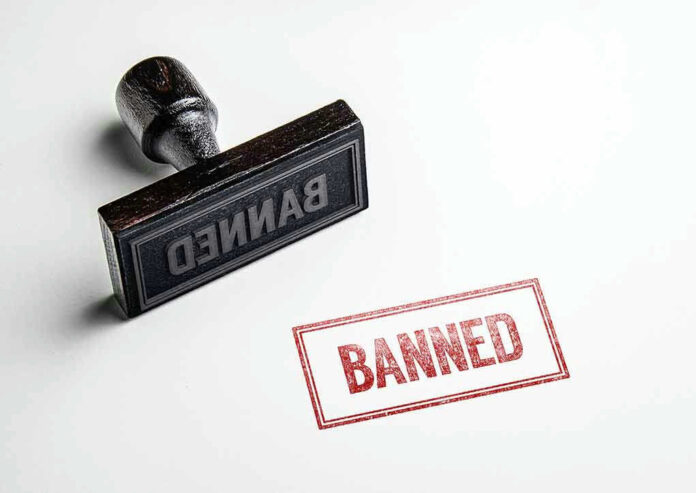
A sweeping tobacco ban in the Maldives now targets an entire generation—raising red flags for Americans wary of government overreach and constitutional threats.
Story Snapshot
- The Maldives imposed a lifetime tobacco ban on anyone born after January 1, 2007, affecting both citizens and tourists.
- Retailers face strict age verification requirements and heavy fines under the new law, which also bans vaping for all ages.
- This is the world’s first nationwide generational ban, surpassing previous proposals in New Zealand and the UK.
- The law sets a precedent some global health advocates hope other nations will follow, sparking warnings about erosion of personal freedoms.
Maldives Implements Global First: Tobacco Ban for an Entire Generation
The Maldives became the first nation to outlaw tobacco use for anyone born after January 1, 2007, with the law taking effect November 1, 2025. This generational ban covers every form of tobacco, including cigarettes, cigars, and chewing tobacco. Unlike previous restrictions, the law applies universally—citizens and tourists alike are forbidden to purchase, use, or possess tobacco if part of the affected generation. Enforcement is strict: retailers must verify age or face fines, and vaping is banned for all ages.
Retailers across the Maldives now shoulder major compliance burdens. Before every sale, they are required to check government-issued identification for age verification, or risk fines of up to 50,000 rufiyaa (about $3,200). For vaping violations, penalties reach 5,000 rufiyaa (roughly $320). The law’s language is clear: “No person born after January 1, 2007, shall purchase, use, or possess tobacco products in the Republic of Maldives.” The enforcement regime leaves little room for error, especially for businesses serving international tourists.
Origins and Global Context: Why the Ban Matters to Americans
The idea of a “smoke-free generation” ban originated in New Zealand, but its law was repealed before implementation. The Maldives took the concept further, enacting the world’s first permanent generational ban. This move has caught the eye of global health organizations, which praise the policy as “world leading.” However, for many Americans, this sets a troubling precedent. When international agencies hail sweeping prohibitions, it signals a growing push for top-down mandates—often at the expense of personal liberty and constitutional rights cherished in the United States.
It’s not just about tobacco. The Maldives ban includes all forms of vaping and e-cigarettes, regardless of age. Globally, similar proposals are emerging: the UK’s Tobacco and Vapes Bill is under consideration, and public health advocates hope to export these restrictions. The Maldives’ law is already being described as a “historic milestone” and a model for other countries. For American conservatives, this raises questions: How soon before unelected bureaucrats or left-leaning politicians import these ideas to target lawful products and personal choice in the U.S.?
Power, Enforcement, and the Erosion of Individual Liberty
The Maldives’ government, led by President Mohamed Muizzu, used executive and legislative authority to enact and enforce this sweeping law. The Ministry of Health implements the ban, while Parliament approved the amendments. Retailers and the tourism industry are on the front lines of compliance, with international visitors subject to the same rules as citizens. The law’s strict enforcement, including heavy penalties for noncompliance, shows how quickly governments can move from voluntary health campaigns to mandated behavior—removing personal responsibility from the equation.
For American readers, the Maldives’ generational ban is a cautionary tale. Advocates claim it’s for public health and to “protect youth,” but such policies open the door to broader bans, surveillance, and erosion of constitutional rights. The U.S. Constitution defends individual liberty, due process, and limits on government power for good reason. When foreign precedents are held up as models, it’s a warning: today’s tobacco ban could become tomorrow’s restriction on your freedoms, whether it’s gun rights, dietary choices, or parental authority.
Expert Reactions and Global Pushback
Public health and international organizations praise the Maldives as a pioneer, hoping to see similar generational bans elsewhere. They cite declining tobacco use and support the goal of a “smoke-free generation.” Yet, policy analysts and critics warn that heavy-handed bans can backfire. Unintended consequences may include the emergence of black markets, loss of personal freedoms, and punitive measures against law-abiding citizens and businesses. Some experts note the lack of data on long-term effectiveness, and the risk of expanding government overreach under the guise of health or safety.
Smoking banned for entire generation under sweeping new national law https://t.co/kgXTX8qhVQ #FoxNews
— MATT (@MATTHILGER1) November 5, 2025
The Maldives’ experience is a stark reminder for Americans: vigilance is needed whenever sweeping laws promise “collective good” at the cost of individual rights. While the U.S. is not the Maldives, global trends—especially those celebrated by international agencies—can influence future policy debates at home. The lesson is clear: defend your constitutional freedoms, question government mandates, and beware of policies that restrict personal choice under the banner of public health or safety.
Sources:
Generational tobacco ban in the Maldives: World’s first nationwide policy
Maldives becomes first country to impose generational ban on tobacco
Smoking banned for entire generation under sweeping new national law
Maldives makes history with lifetime smoking ban for new generation












